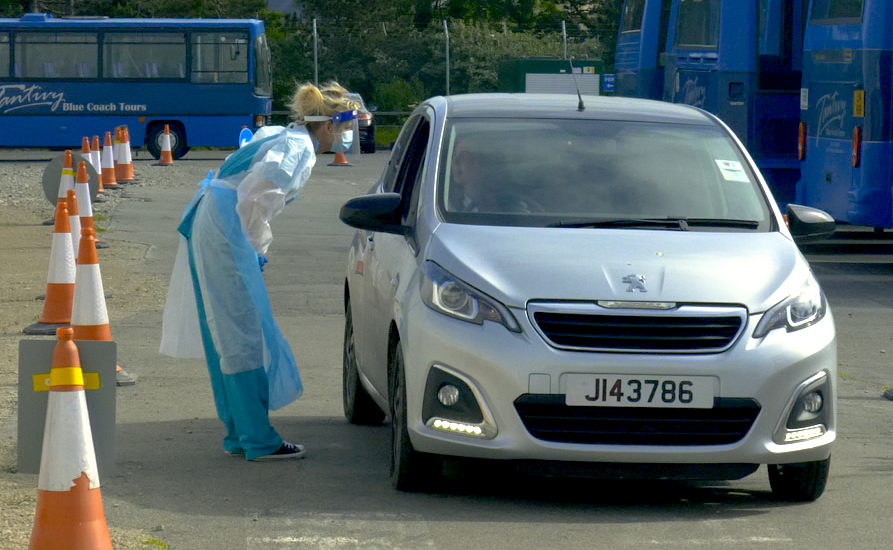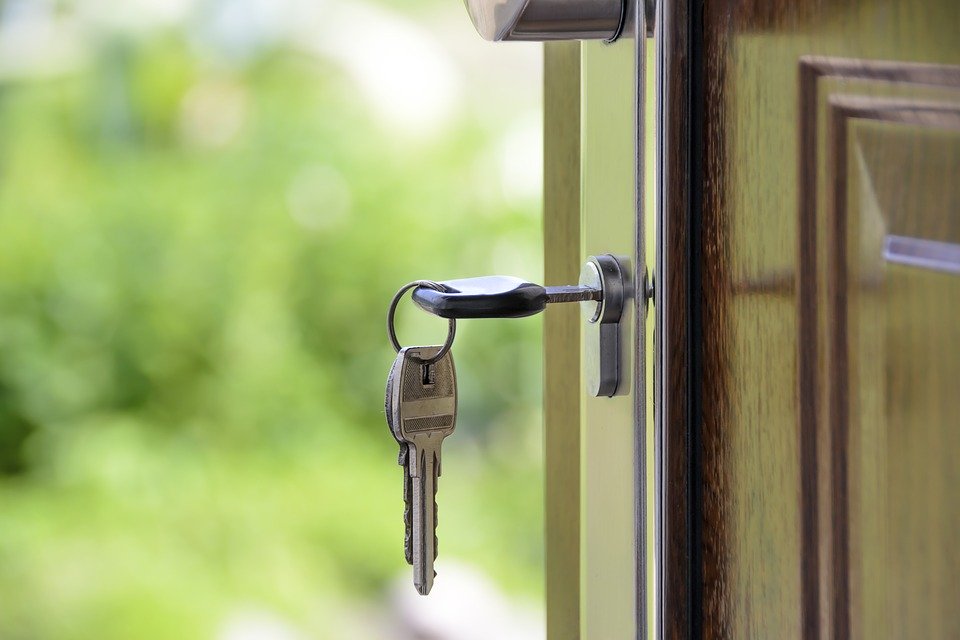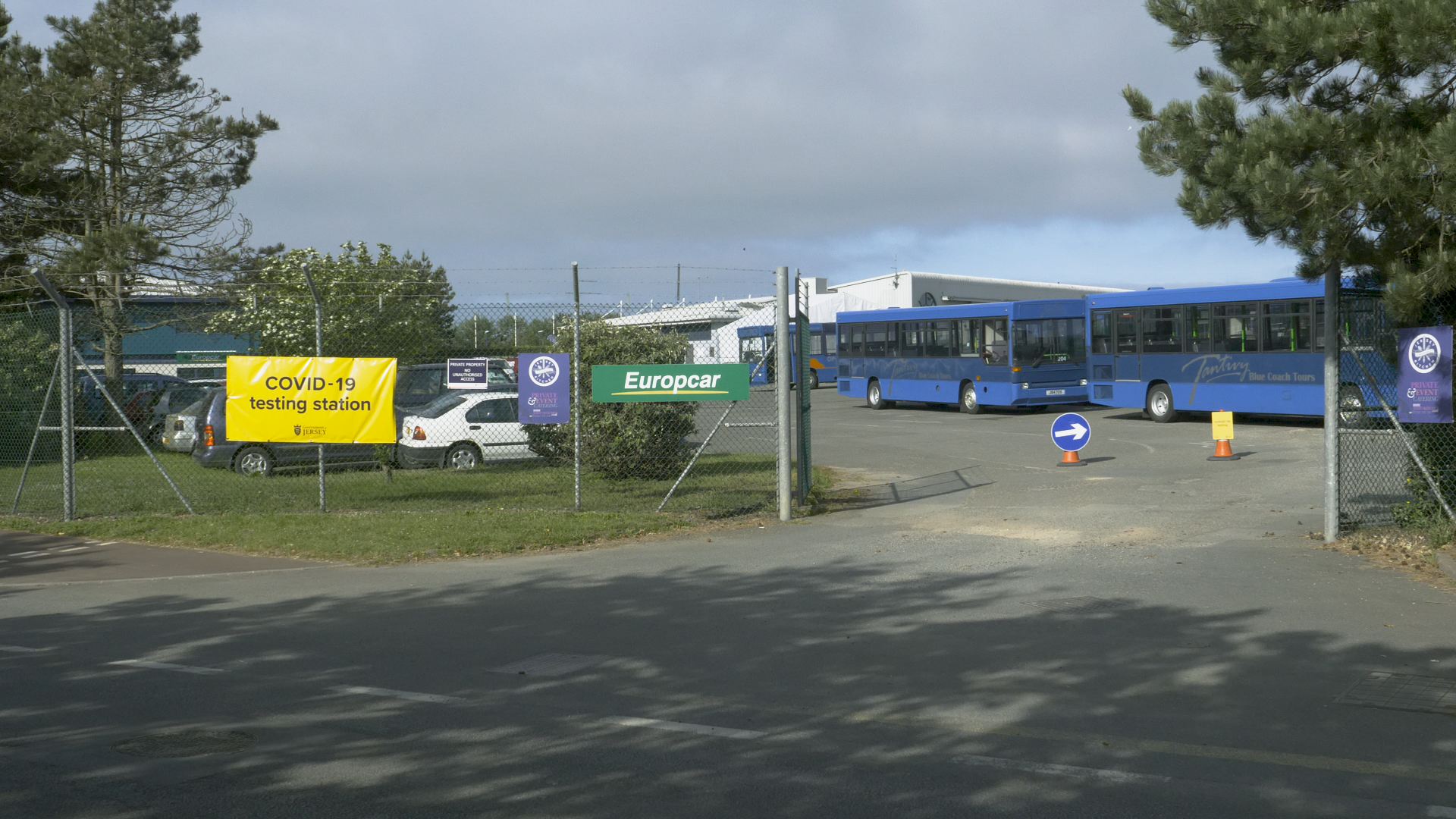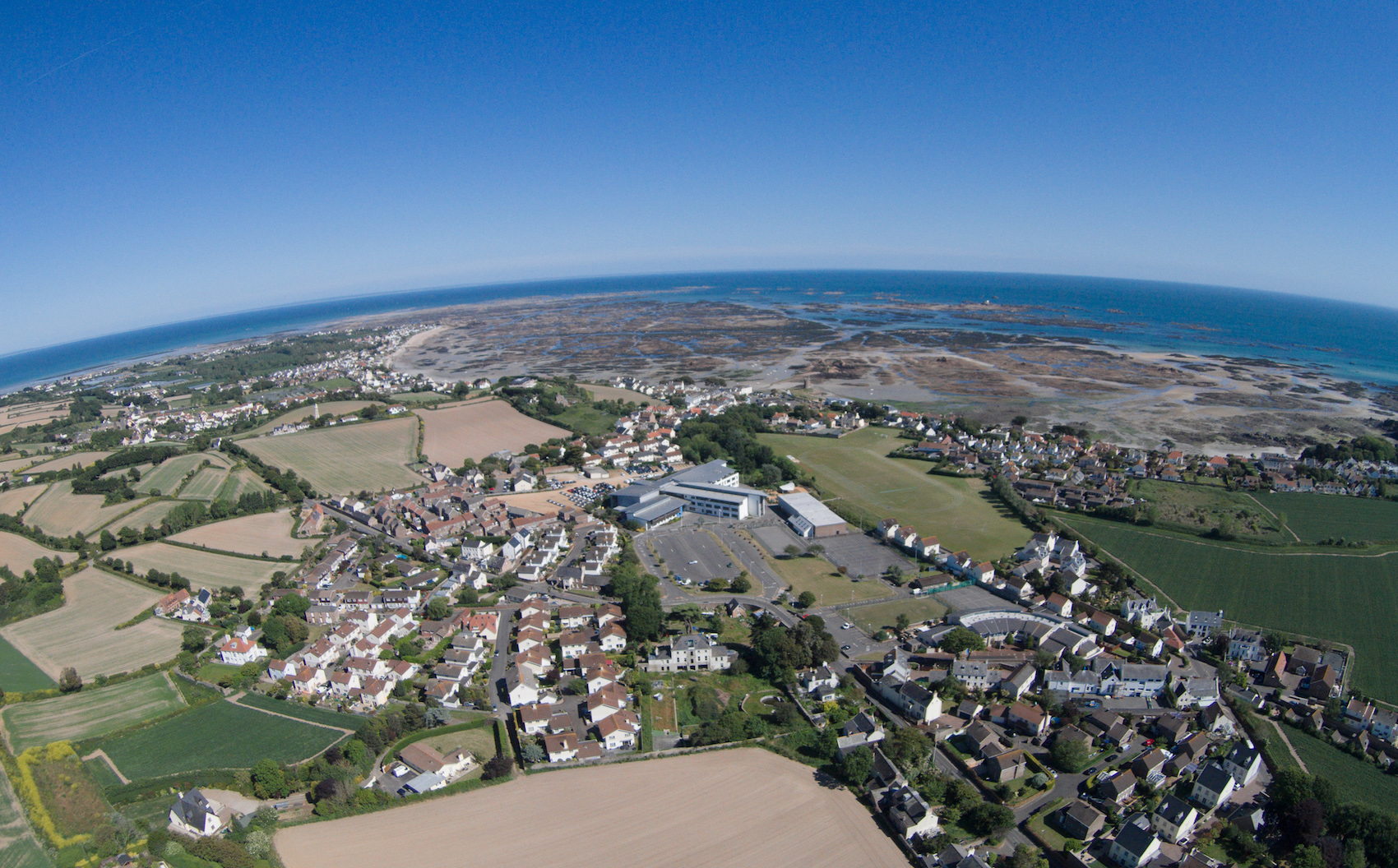


The Environment Minister has made an outside push for stricter testing measures at the island's ports, likening the government's current travel policy to "gambling" with lives and the economy.
If Deputy John Young's proposals are agreed by States Members next week, anyone entering Jersey will be forced to remain in self-isolation as they await the results of a covid-19 test - in contrast to the current policy, which allows travellers to move freely around the island in the meantime.
Deputy Young also wants to see transport arranged to bring travellers directly to their destinations, and more guidance given to accommodation providers hosting tourists.
The proposals mark the second time that the Environment Minister has broken ranks over the 'Safer Travel Policy'.

Pictured: Deputy Young wants all travellers to self-isolate as they wait for their results.
During a debate over whether borders should reopen last week, Deputy Young declined to support the travel plans drawn up by his Ministerial colleagues, instead calling for the reopening to be delayed until a testing programme involving a track and trace app are in place.
Despite his plea, the policy was adopted, and borders reopened on Friday with passengers given a choice of 14 days' quarantine or a PCR test on arrival at the ports. Anyone who opts for the latter is not forced to self-isolate while they await their result - the policy instead relies on their own "common sense" to willingly do so.
Concerns about the lack of enforced isolation surged earlier this week after two individuals arriving by air and sea had tested positive for covid-19.
These then intensified after it emerged that a group of 21 passengers arriving on the Commodore Clipper from Portsmouth on Monday evening were not tested immediately upon arrival.
In what he described as a bid to make border arrangements “as safe and effective as possible in protecting our community”, Deputy John Young is proposing that not only anyone entering the island receive a PCR test upon arrival, but also that they self-isolate as they wait for their results.
Pictured: Passengers on the Clipper were not tested when they arrived into the island on Monday.
In the event that testing facilities are not available upon arrival, travellers would be asked to self-isolate until they are tested.
The Environment Minister also wants his Infrastructure colleague, Deputy Kevin Lewis, to arrange “appropriate transport arrangements” using either buses or other private operators for those who need to self-isolate.
Finally, he is requesting that the Health Minister, Deputy Richard Renouf, issue guidance to anyone providing tourist accommodation to those in quarantine to limit the risk of further infections.
According to Deputy Young, all of those measures should be implemented immediately and remain in place for a minimum of six weeks. They may then be renewed if the Health Minister deems it necessary.
In a report accompanying his proposals, Deputy Young appeared to take aim at his Ministerial colleagues as he spoke about a failed bid to change the policy to make self-isolation while awaiting a test result compulsory.

Pictured: A previous bid to make it compulsory for travellers to self-isolate while they await their test results was voted down last week.
"It is of great regret that amendment was treated so dismissively by those promoting the policy in an emotional and highly charged debate; compounded by exaggerated claims of losing our air links," he said.
The Minister went on to say that the rejection of the amendment, which echoes his current proposals, had resulted “in deep division in our community”.
“This has especially affected many people who only recently have started to gain confidence to re-engage within our community and return to normal life, shopping, restaurants and even staycations,” Deputy Young said.
The division, he said, was only made worse by the news that two travellers had tested positive for the virus. While both decided to remain in their accommodation, the Minister noted that current arrangements would have permitted them to “roam freely in our community” for 37 and 27 hours respectively.
“We have been so lucky that both these people were responsible, acted sensibly and remained in the residences where they are staying,” Deputy Young said.
While health advisers have said the risk of being infected from a visitor is low, Deputy Young said the impact of the risk materialising is “potentially very great”.

Pictured: The Environment Minister says new the risk of new infections is "too great to ...go unmanaged".
“At its worst it could result in the death of a vulnerable person, closedown of business premises, many other people being required to isolate and economic damage,” he stated.
“This is too great to allow the risk to go unmanaged, to do so is gambling. The proposition simply puts in place the additional safeguards in the procedure to close the gap and manages this risk.”
Concluding, the Minister commented: "To those that argue the inconvenience is too great, my response is this is a small price to pay for the benefits of reopening our borders. We can reduce the time required for self-isolation before providing test results and cope with a higher volume of tests, when we acquire the planned local testing capability."
Deputy Young's proposals are set to be debated by States Members on 14 July.
Comments
Comments on this story express the views of the commentator only, not Bailiwick Publishing. We are unable to guarantee the accuracy of any of those comments.